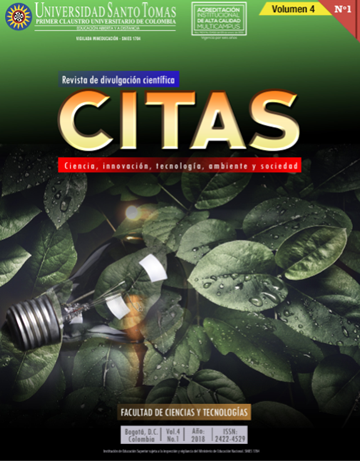Desarrollo de prácticas pedagógicas en el compromiso socio-comunitario universitario
Development of pedagogical practices in the university socio-community commitment
Abstract (en)
This article fits into the framework of the research project “Training and pedagogical practices of teachers of the careers of Sciences of the health of the National University of the Chaco Austral”, in which we approach the pedagogical practices in commitment social and Community College. Specifically, we will work with the career of Medicine of the University of the Chaco Austral in the period of March to June 2018. Such practices have geographical specificity the work developed in the province of Chaco, República Argentina with knowledge and its construction through the University social and community work. As a general objective we have raised to point out the significant pedagogical practices in University social and community commitment. As specific objectives, strengths and weaknesses of students regarding participation in the socio-community practices and the ability that they have to apply academic knowledge to real life concern. Participation of 200 students, 12 teachers and the sample is collected through interviews and survey instruments. Categorizations and construction dimensions were conducted for the analysis of the information. As central results we can mention that students have the ability to apply academic knowledge instilled by the teachers in the field work.Abstract (es)
Este artículo se inserta en el marco del proyecto de investigación “Formación y prácticas pedagógicas de los profesores de las carreras de ciencias de la salud de la Universidad Nacional del Chaco Austral”, en el cual abordamos las prácticas pedagógicas en el compromiso socio-comunitario universitario. Específicamente, trabajaremos con la carrera de medicina de la Universidad del Chaco Austral en el periodo de marzo-junio de 2018. Dichas prácticas, tienen como especificidad geográfica la labor desarrollada en la provincia del Chaco, República Argentina, con el conocimiento y su construcción a través del trabajo sociocomunitario universitario. Como objetivo general nos hemos planteado puntualizar las prácticas pedagógicas significativas en el compromiso socio-comunitario universitario. Como objetivos específicos, se refieren los puntos fuertes y débiles de los estudiantes con respecto a la participación en las prácticas socio-comunitarias y la capacidad que tienen los mismos para aplicar los conocimientos académicos a la vida real. Participaron 200 estudiantes, 12 docentes y la muestra se recolectó a través de los instrumentos de encuesta y entrevistas. Para el análisis de la información se realizaron categorizaciones y construcción de dimensiones. Como resultados centrales podemos mencionar que los estudiantes presentan la capacidad necesaria para aplicar los conocimientos académicos inculcados por los docentes, en el trabajo en terreno.
References
Furco, A. (2008). El rol del docente en el desarrollo de proyectos de aprendizaje – servicio. En Antología 1997-2007, Seminarios Internacionales “Aprendizaje y servicio solidario”. Programa Nacional Educación Solidaria. Buenos Aires: Ministerio de Educación de la Nación.
Gonzáles, A. & Montes, R. (2008). El aprendizaje-servicio en la educación superior. Buenos Aires: Editorial Eudeba.
Macchiarola, V.; Martini, C.; Montebelli, A. (2012). Prácticas socio comunitarias en el trayecto formativo del profesional de educación especial. Recuperado de: http://bdigital.uncu.edu.ar/objetos_digitales/4342/marcchiarolaruedes3.pdf
Tarifa, R. (2013). Incorporación de las prácticas socio-comunitarias al currículo universitario. Universidad Nacional de Río Cuarto. Recuperado de: http://www.hum.unrc.edu.ar/publicaciones/contextos/contextos%2015/articulos/vol15/pdf/05-tarifa.pdf
How to Cite
License
The authors sign a transfer of rights so that Universidad Santo Tomás can publish the articles under the conditions described below. The authors, readers and other users are free to share, copy, distribute, perform and publicly communicate the work under the following conditions:
-
Attribution — You must give appropriate credit, provide a link to the license, and indicate if changes were made. You may do so in any reasonable manner, but not in any way that suggests the licensor endorses you or your use.
-
NonCommercial — You may not use the material for commercial purposes.
-
ShareAlike — If you remix, transform, or build upon the material, you must distribute your contributions under the same license as the original.
No additional restrictions — You may not apply legal terms or technological measures that legally restrict others from doing anything the license permits.
CITAS is licensed under Creative Commons Attribution-NonCommercial-ShareAlike 4.0 International (CC BY-NC-SA 4.0).

Until 2019 the documents published in the magazine were under the Creative Commons Attribution-ShareAlike license (CC BY-SA), however, in order to guarantee the open and free distribution of the content published in the magazine, it was decided to change the type Commons Attribution-NonCommercial-ShareAlike 4.0 International license (CC BY-NC-SA 4.0)






